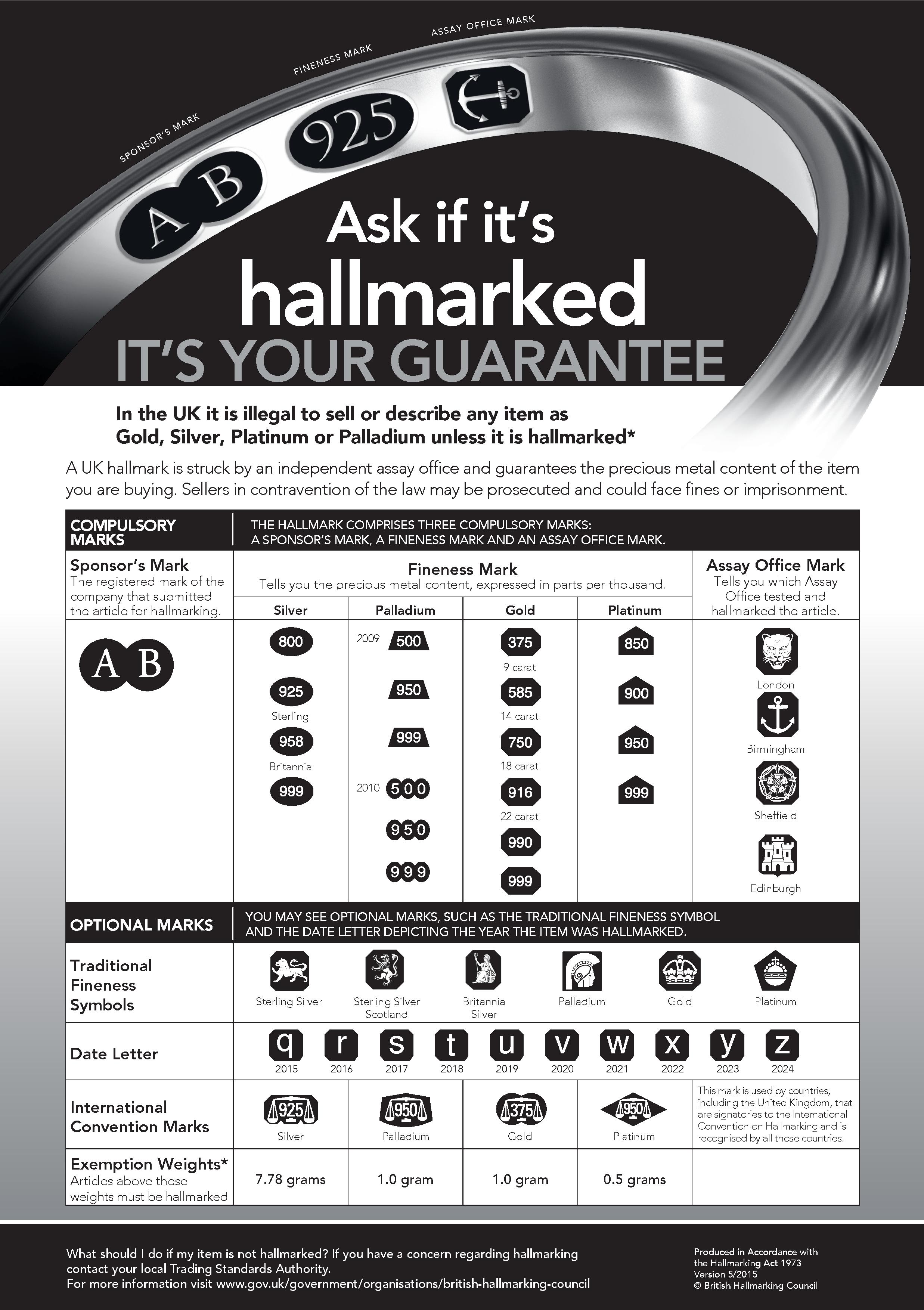What is hallmarking?
A hallmark is a minimum of three marks that are struck into a piece made of precious metal, whether that be silver, gold, platinum and palladium. These marks tell us who made the piece (the “Makers” mark), the purity of the precious metal and the place where it was tested (the Assay Office)
Where does hallmarking take place?
Hallmarking takes place in an Assay Office, of which there are four in the UK, each has their own mark that is stamped onto the piece ~ London (leopard’s head), Birmingham (an anchor), Sheffield (a rose) and Edinburgh (a castle)
When did this start?
This has been going on for over 700 years!! Back in 1300, a Statute of Edward I instituted the testing (assaying) and testing of precious metals.
Why is hallmarking important?
In the natural state, precious metals are too soft to be used in the creation of jewellery and silverware so have to be “mixed” with other metals to form an alloy, giving them the strength they need. Because silver, gold, platinum and palladium are so expensive, larger profits could be made by reducing the amount of precious metal in the alloy or plating base metal with a thin coat of precious metal. You can’t tell by touch or feel what the content of precious metal is, even an expert wouldn’t be able to. Hallmarking guarantees that the piece conforms to the legal standard of purity
Do other countries use hallmarks?
In 1972, the UK has been a signatory to the International Convention of Hallmarks. This means that the Assay offices here in the UK can apply the Common Control Mark that is recognised by the other members of the Convention and vice versa. Some of the other member countries are Austria, Finland, The Netherlands, Ireland, Switzerland, Sweden and Norway.
Other countries may have their own version of hallmarking and some rely on the maker to apply the correct purity stamp. This may mean that the alloy may not conform to the UK purity standards.
So this is a little bit about hallmarking, why it’s important and why you should always check that your precious metal pieces are hallmarked.
